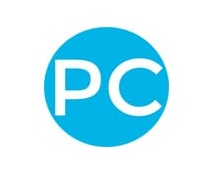Custom Flash Drive USB Designs, Custom Power Bank Portable Battery Chargers, Uncategorized
American Dental Association Uses Chinese Supplier: Sends 37,000 USB Drives With Virus
Watch YouTube Video: How to Make a Custom Flash Drive
Distributor Alert: Make sure your clients or you DO NOT GO DIRECT TO CHINA!
When IT professionals and marketers like you seek out a USB supplier, security and reliability are priorities one and two. If you buy foreign hardware to boost your bottom line, it isn’t solely quality that suffers. With your company’s reputation at stake, you can’t afford to risk brand damage and lost trust by buying cheap, potentially malicious parts. Preventing a security breach and inspiring confidence is far more valuable than any funds you might save by outsourcing your USB drives, a hard-learned lesson for the ADA.

Dentistry’s Dirty Drives
The dentist is the last person you’d expect to infect you. Yet, in the fall of 2015, the ADA distributed 37,000 USB flash drives to members. A percentage of those drives, intended to display a searchable PDF manual of CDT 2016 Dental Procedure Codes, injected a malware virus into recipients’ computers.
When you’re an office that stores sensitive medical data, you can’t stick any old thumb drive into your machine. That’s akin to giving abscesses to dental patients who come in for routine cleanings. Of course, the ADA often uses USB flash drives to transfer updated manuals to members. The custom branding on those memory sticks surely inspires trust.
So, exactly how did the ADA allow this security breach to occur? The formerly reputable group saved a few bucks by using a Chinese supplier. It only cost them the trust of dental offices nationwide – a high price to pay for skipping an important step like quality assurance.
Even though the ADA sent out a warning to all members about the infected USB drives, and even though they claimed that anti-virus software installed on office computers should stop the virus in its tracks, a noteworthy number of members unwittingly handed control of their computers to hackers.
With Social Security numbers, bank account numbers, and other personal information, a medical office is a hotbed of highly sought-after data. Making matters worse, this particular malware virus allowed hackers full remote access to the system – and to all of that sensitive personal data. An investigation found that one of the Chinese manufacturer’s computers was infected and unintentionally loaded malicious files onto USB drives intended to hold the PDF manual.


